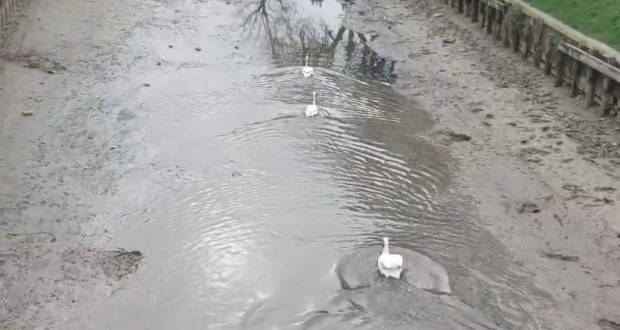The Environment Agency says it can’t put a time limit on when work to fix breaches in the banks of the River Welland will be completed, as a local fisherman warned Spalding will lose its prestige for fishing.
The water levels in the waterway will not be returned to normal levels until the breach is fixed with work due to start mid-month.
The EA though is unable to say when that might happen.
“The team is currently working at pace to repair the breach,” a spokesman for the company said.
It comes as the chair of the Peterborough and District Angling Association, Rob Harris, claimed the town could lose its status as a fishing hot spot.
“We’re in our close season now, but it did affect the end of our winter season,” he said.
“Spalding is nationally famous for roach fishing. It’s been so for years,
“Now the fish are gone and it’s going to be difficult to get the levels of fish back to where they were.
“We’ve seen the reports of dolphins in the River Welland I don’t think it’s a coincidence that more fish like roach are in the upper waters and predators are after them.
“Marine mammals should not be mixing with fish like roach and we’re yet to see what long term issues it will cause to the levels of the fish.”
Rob also stated that due to the lack of wildlife in parts of the river, oxygen levels may be depleted, especially when temperatures increase as we look towards summer.
He said that the club, which hands out licences to fish on the Welland, could look to get more fish for the river, but there was already a waiting list.
“The Environment Agency get them from Calverton Fish Farm in Nottinghamshire which breeds 400,000 fish a year nationally,” he continued. “As a club we’ve already requested about 100,000 because that’s how many were killed due to pollution in the River Nene and it’s estimated there may have been two to three times that number who moved downstream to be eaten by seals.
“If Calverton can only produce 400,000 a year, and that’s nationwide, they’re going to have to spread those fish thinly.”
 The Voice of Spalding and South Holland
The Voice of Spalding and South Holland




